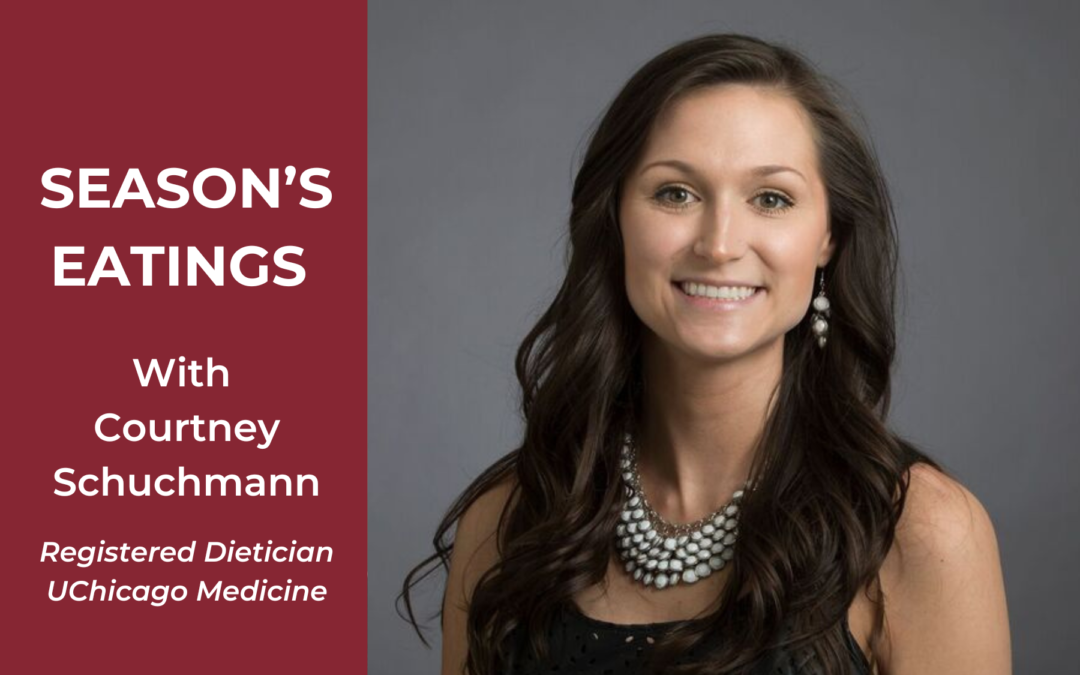From Halloween through the New Year, it can feel like every gathering – from family dinners to holiday parties and cookie exchanges – centers around food. What should be a happy holiday season often becomes a challenging ‘food season’ for those living with inflammatory bowel disease, irritable bowel syndrome, Celiac disease, liver disease, pancreatic disease, or those struggling with metabolic and weight-related concerns.
Fortunately, Courtney Schuchmann, registered dietitian at the University of Chicago Medicine Digestive Diseases Center, has some helpful guidance.
“Part of the difficulty comes from our mindset about the holidays,” explains Schuchmann. “The focus has shifted in the US, so that the holidays themselves are very food-centric. Even as a dietitian, I try to remind patients that holidays are not just about eating but about spending time with friends and family, and I encourage them to remove the focus on food, to think more about the experience of socializing and enjoying this season.” Indeed, the holiday season offers many opportunities for families to be together: holiday concerts, theater performances, religious services, winter walks, shopping, winter sports, and viewing holiday light displays are all great ways to be together, without necessarily coming to the table.
The holidays also offer an opportunity to expand everyone’s culinary and dietary repertoire. Schuchmann suggests that those planning festivities should invite loved ones with dietary restrictions to help plan menus, and invite everyone to bring dishes they can eat and enjoy.
Even though holiday gatherings may be rooted in tradition, “they can be a great opportunity to play around with foods,” explains Schuchmann. “Try out new recipes and new ways to prepare foods and bring a dish that you feel more comfortable with – to enjoy and share during get-togethers. That could be a salad, vegetables, sweet or regular mashed potatoes, or a dessert dish that incorporates apple sauce or fresh fruit, instead of lots of oils and sugars. It can be a great opportunity to expose loved ones to some options that are more comfortable for you.”
And of course, no one needs to navigate this difficult time alone. “Everyone is different,” says Schuchmann, “and anyone who needs guidance to better understand how food relates to their specific circumstances can definitely make an appointment to meet with us. Registered dietitians are always here to help you make the best choices for you.”

